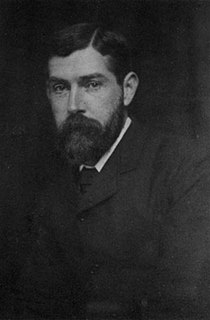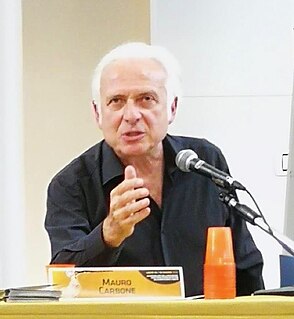
George Edward Moore was an English philosopher, who with Bertrand Russell, Ludwig Wittgenstein and earlier Gottlob Frege was among the founders of analytic philosophy. He and Russell led the turn from idealism in British philosophy and became known for advocating common-sense concepts and contributing to ethics, epistemology and metaphysics. He was said to have an "exceptional personality and moral character". Ray Monk later dubbed him "the most revered philosopher of his era". As Professor of Philosophy at the University of Cambridge, he influenced but abstained from the Bloomsbury Group. He edited the journal Mind. He was a member of the Cambridge Apostles from 1894 to 1901, a fellow of the British Academy from 1918, and chaired the Cambridge University Moral Sciences Club in 1912–1944. As a humanist, he presided over the British Ethical Union in 1935–1936.

Maurice Jean Jacques Merleau-Ponty was a French phenomenological philosopher, strongly influenced by Edmund Husserl and Martin Heidegger. The constitution of meaning in human experience was his main interest and he wrote on perception, art, politics, religion, biology, psychology, psychoanalysis, language, nature, and history. He was the lead editor of Les Temps modernes, the leftist magazine he established with Jean-Paul Sartre and Simone de Beauvoir in 1945.

Analytic philosophy is a branch and tradition of philosophy using analysis, popular in the Western world and particularly the Anglosphere, which began around the turn of the 20th century in the contemporary era in the United Kingdom, United States, Canada, Australia, New Zealand, and Scandinavia, and continues today. Analytic philosophy is often contrasted with "continental philosophy," coined as a catch-all term for other methods prominent in Europe.

Charles Margrave Taylor is a Canadian philosopher from Montreal, Quebec, and professor emeritus at McGill University best known for his contributions to political philosophy, the philosophy of social science, the history of philosophy, and intellectual history. His work has earned him the Kyoto Prize, the Templeton Prize, the Berggruen Prize for Philosophy, and the John W. Kluge Prize.

A subset of absolute idealism, British idealism was a philosophical movement that was influential in Britain from the mid-nineteenth century to the early twentieth century. The leading figures in the movement were T. H. Green (1836–1882), F. H. Bradley (1846–1924), and Bernard Bosanquet (1848–1923). They were succeeded by the second generation of J. H. Muirhead (1855–1940), J. M. E. McTaggart (1866–1925), H. H. Joachim (1868–1938), A. E. Taylor (1869–1945), and R. G. Collingwood (1889–1943). The last major figure in the tradition was G. R. G. Mure (1893–1979). Doctrines of early British idealism so provoked the young Cambridge philosophers G. E. Moore and Bertrand Russell that they began a new philosophical tradition, analytic philosophy.

Gertrude Elizabeth Margaret Anscombe, usually cited as G. E. M. Anscombe or Elizabeth Anscombe, was a British analytic philosopher. She wrote on the philosophy of mind, philosophy of action, philosophical logic, philosophy of language, and ethics. She was a prominent figure of analytical Thomism, a Fellow of Somerville College, Oxford and Professor of Philosophy at the University of Cambridge.
Arthur John Terence Dibben Wisdom, usually cited as John Wisdom, was a leading British philosopher considered to be an ordinary language philosopher, a philosopher of mind and a metaphysician. He was influenced by G.E. Moore, Ludwig Wittgenstein and Sigmund Freud, and in turn explained and extended their work.
Phenomenology in architecture can be understood as a discursive and realist attempt to understand and embody the philosophical insights of phenomenology.

Phenomenology of Perception is a 1945 book about perception by the French philosopher Maurice Merleau-Ponty, in which the author expounds his thesis of "the primacy of perception". The work established Merleau-Ponty as the pre-eminent philosopher of the body, and is considered a major statement of French existentialism.
Simon Caney is Professor of Political Theory at the University of Warwick and a member of the Nuffield Council on Bioethics.
John Russon is a Canadian philosopher, working primarily in the tradition of Continental Philosophy. In 2006, he was named Presidential Distinguished Professor at the University of Guelph, and in 2011 he was the Shastri Indo-Canadian Institute's Canadian Lecturer to India.
Hugh J. Silverman was an American philosopher and cultural theorist whose writing, lecturing, teaching, editing, and international conferencing participated in the development of a postmodern network. He was executive director of the International Association for Philosophy and Literature and professor of philosophy and comparative literary and cultural studies at Stony Brook University, where he was also affiliated with the Department of Art and the Department of European Languages, Literatures, and Cultures. He was program director for the Stony Brook Advanced Graduate Certificate in Art and Philosophy. He was also co-founder and co-director of the annual International Philosophical Seminar since 1991 in South Tyrol, Italy. From 1980 to 1986, he served as executive co-director of the Society for Phenomenology and Existential Philosophy. His work draws upon deconstruction, hermeneutics, semiotics, phenomenology, aesthetics, art theory, film theory, and the archeology of knowledge.

Alice Crary is an American philosopher who currently holds the positions of University Distinguished Professor at the Graduate Faculty, The New School for Social Research in New York City and Visiting Fellow at Regent's Park College, University of Oxford, U.K..
David DeGrazia is an American moral philosopher specializing in bioethics and animal ethics. He is Professor of Philosophy at George Washington University, where he has taught since 1989, and the author or editor of several books on ethics, including Taking Animals Seriously: Mental Life and Moral Status (1996), Human Identity and Bioethics (2005), and Creation Ethics: Reproduction, Genetics, and Quality of Life (2012).

Leonard "Len" Lawlor is Edwin Erle Sparks Professor of Philosophy at Pennsylvania State University. He specializes in nineteenth- and twentieth-century Continental philosophy.

Mauro Carbone is an Italian philosopher. Since 2009, he has been a full professor at the Faculté de Philosophie of the Jean Moulin University Lyon 3 in Lyon, France. From 2012 to 2017, he has been a senior member of the Institut Universitaire de France.

Western Marxism is a current of Marxist theory that arose from Western and Central Europe in the aftermath of the 1917 October Revolution in Russia and the ascent of Leninism. The term denotes a loose collection of theorists who advanced an interpretation of Marxism distinct from both classical and Orthodox Marxism and the Marxism-Leninism of the Soviet Union.
David Archard is a British moral philosopher who is Emeritus Professor of Philosophy at Queen's University Belfast. He is known for his work on children and families.
John O'Neill is a Canadian sociologist, phenomenologist, and social theorist known for his writings on critical social theory, philosophy, political economy, literary theory, psychoanalysis, and mass culture. O’Neill is the author, editor, and translator of over 30 books and hundreds of articles, many of which have been translated into French, German, Japanese, and Mandarin. O’Neill's work focuses on the notion of corporeal knowledge and embodiment as mediated by familial relationships and social welfare. O’Neill is Distinguished Professor of Sociology at York University (Emeritus), where he also co-founded the Programme in Social and Political Thought in 1972.
Embodiment theory speaks to the ways that experiences are enlivened, materialized, and situated in the world through the body. Embodiment is a relatively amorphous and dynamic conceptual framework in anthropological research that emphasizes possibility and process as opposed to definitive typologies. Margaret Lock identifies the late 1970s as the point in the social sciences where we see a new attentiveness to bodily representation and begin a theoretical shift towards developing an ‘Anthropology of the Body.’










